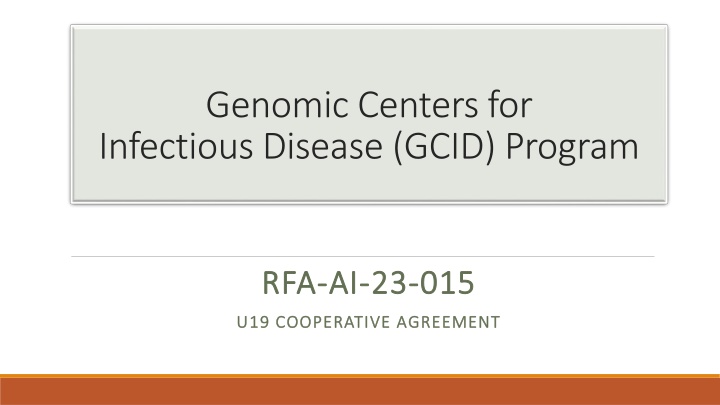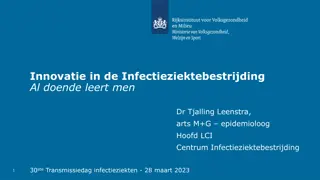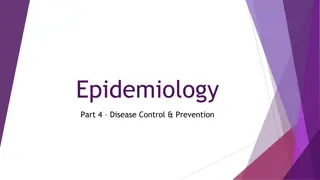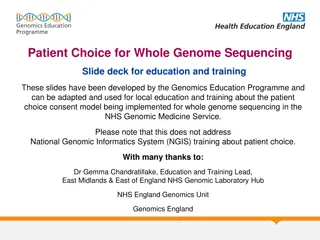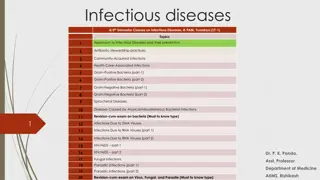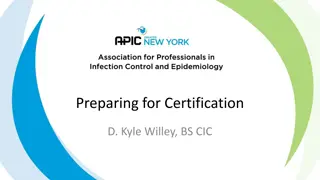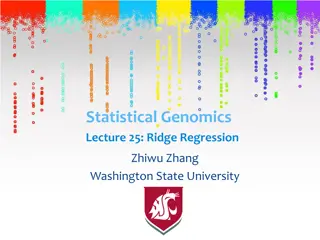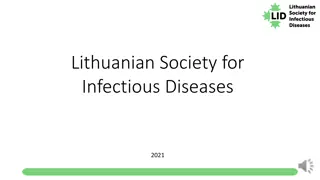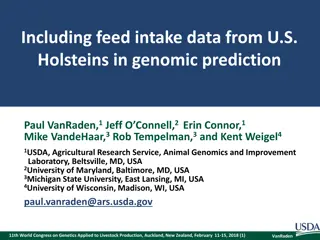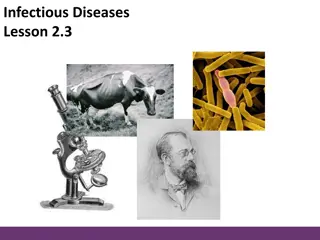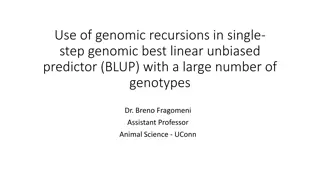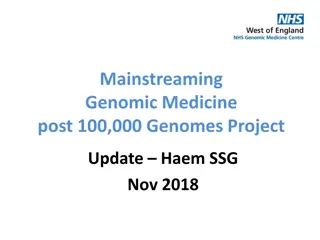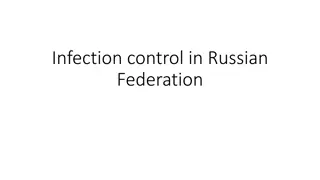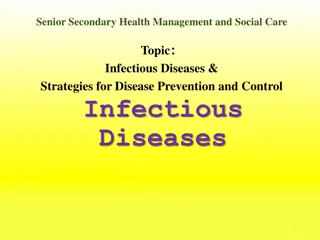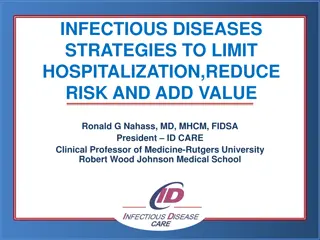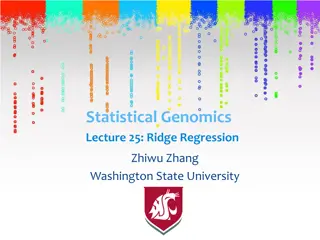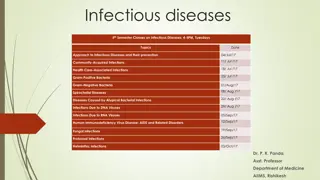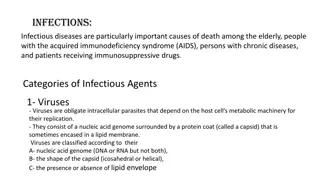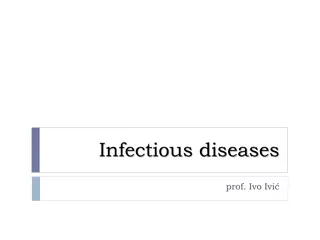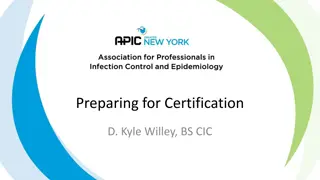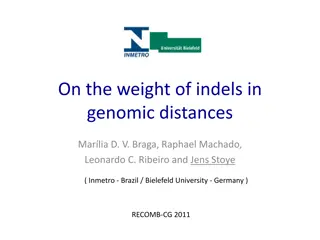Genomic Centers for Infectious Disease Program
"Advance development of innovative genomic tools for human pathogens and interactions with host. Rapidly respond during outbreaks. Address basic, translational, and clinically relevant questions. Support genomics-based tools for diagnosing, preventing, and treating infectious diseases."
Download Presentation

Please find below an Image/Link to download the presentation.
The content on the website is provided AS IS for your information and personal use only. It may not be sold, licensed, or shared on other websites without obtaining consent from the author.If you encounter any issues during the download, it is possible that the publisher has removed the file from their server.
You are allowed to download the files provided on this website for personal or commercial use, subject to the condition that they are used lawfully. All files are the property of their respective owners.
The content on the website is provided AS IS for your information and personal use only. It may not be sold, licensed, or shared on other websites without obtaining consent from the author.
E N D
Presentation Transcript
Genomic Centers for Infectious Disease (GCID) Program RFA RFA- -AI AI- -23 23- -015 015 U19 COOPERATIVE AGREEMENT U19 COOPERATIVE AGREEMENT
Purpose 1. To advance the development and use of innovative genomic and bioinformatics tools: emphasis on human pathogens and their interactions with the host and microbiome 2. To rapidly respond to emerging needs, especially during disease outbreaks 3. To address basic, translational, and clinically relevant questions in host-pathogen interactions. 4. To support the development of genomics-based tools to diagnose, prevent, and treat infectious diseases. 5. To be poised to leverage the expertise and resources within the network to assist in a coordinated research response.
HOUSEKEEPING IMPORTANT DATES May 2, 2023 nonbinding letter of intent due June 2, 2023 application due date FUNDING Application budgets are not expected to exceed $2.85 million in direct costs per year, which includes up to $50,000 in direct costs for one Collaborative Pilot Project per year. NO SPECIFIC COMPONENT BUDGET LIMITS The maximum period is 5 years. More than one application per institution allowed NO CLINICAL TRIALS Foreign components are allowed
GCID Program Components Overall Administrative Core (1) 12 pages Technology and Data Core (1) 12 pages Optional Scientific Core (1) 6 pages Research Projects (4) 12 pages each
Administrative Core Headed by the Contact PD/PI, that will be responsible for Center activities Collaborative Pilot Projects (CPPs): This FOA supports Collaborative Pilot Projects for small-scale studies in areas of shared scientific or technological interest between the funded GCIDs, and of benefit to the broader scientific community. The projects will be identified by the Administrative Core with input from the Administrative Core Leader and with NIAID consultation. Emergency Response Projects (ERPs): This FOA supports Emergency Response Projects to develop critical genomics-based technological tools, methods, and studies that advance our understanding of pathogens during pandemic and epidemic outbreaks. Similar to the CPPs, the projects will be identified by the Administrative Core and its leaders, with NIAID consultation. Plan for Enhancing Diverse Perspectives (PEDP): This initiative requires a Plan for Enhancing Diverse Perspectives. The Administrative Core will oversee and ensure the implementation of the Center's PEDP.
Technology and Data Core Support research and development to offer innovative genomic and data technologies as a shared resource to all research projects. The Core synergizes with the Research Projects 1) develop innovative genome and related sequencing technologies and approaches, including large-scale high-throughput sequencing, transcriptomics, and metagenomics; 2) provide data analysis and management capabilities and support, including innovative bioinformatics, computational and data visualization, and integration approaches; and 3) efficiently and rapidly disseminate generated data, analysis tools, reagents, and other resources generated to the broader scientific
Optional Scientific Core To support resources and/or facilities that are essential for the activities of two or more Research Projects. Optional Cores must be well justified and provide support to at least 2 Research Projects
Research Projects Must propose 4 separate Research Projects Each addresses a different human pathogen group centered around the theme of viruses, bacteria, fungi, parasites, and vectors. Applicants are encouraged to incorporate pathogens in the NIAID priority pathogens list and Prototype Pathogens, as well as microbiome analysis Research projects are: expected to incorporate state-of-the-art technologies and approaches and use a combination of genomic sequencing, functional genomics, and bioinformatics analyses to understand infectious diseases expected that during pathogen outbreaks, the relevant research project is prepared to undertake Emergency Response Projects to support NIAID's infectious disease response and to advance knowledge about emerging pathogens
Key Investigators UF GCID Proposed Vision (so far): Co-PDs (Administrative Core) Marco Salemi, George Drusano, Mattia Prosperi Co-PI/co-Inv Brittany Rife Magalis (1) Single-cell One-Shot Multi-Omic SequencIng System (sc-OSMOSIS) Development of one-platform/one experiment system for sc host/pathogen genomic, transcriptomic and cell phenotyping (2) Organoids technology for drug discovery (3) Data science Bian Jiang A comprehensive Genomic Data Science/AI framework for diagnosing, preventing, and treating microbial infections Technology and Data Core Megan Stanifer Steeve Boulant Steven Madore (ICBR) Simone Marini AI modelling services: data analyses, learning, forecast Data Intelligence Scientific Core Rui Yin Derek Cummings Glenn Morris Carla Mavian Drusano sgroup Susana Valente (Scripps) Matthew Disney (Scripps) David Bloom (epigenetic regulation) Jason Blackburn
A comprehensive Genomic Data Science/AI framework for diagnosing, preventing, and treating microbial infections Fungi Viruses Bacteria Parasites Threat assessment/Forecast UF GCID Proposed Vision (so far) Fast response Host/pathogen scDNA sequencing Host/pathogen scRNA sequencing 3D tissues bioprinting/organoids Diagnostic biomarkers/drug discovery Phylodynamic/Phyloanatomy modeling
